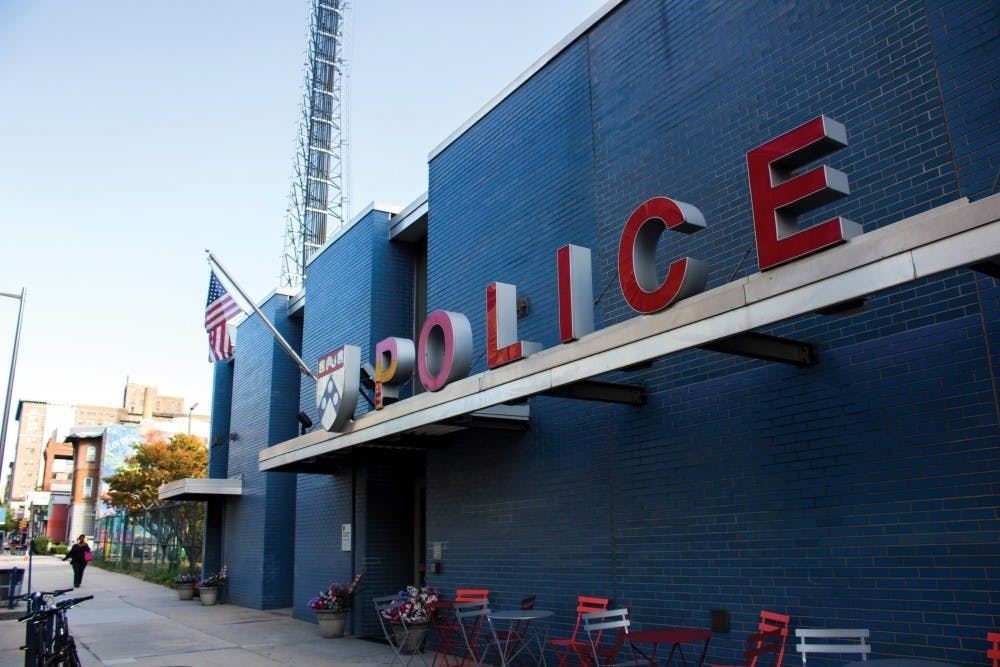In the midst of student petitions and frustration over the recent surge in social event closures, the Division of Public Safety says they still strongly believe that the higher level of security enforced upon social events benefits all students.
Vice President for Public Safety Maureen Rush is one of the three administrators chairing the Task Force on a Safe and Responsible Campus Community. Rush said in an interview that noise complaints and unregistered social events are the two biggest reasons that parties or gatherings are being shut down.
She also said the calls that the Penn Police Department receive are largely coming from members of the Penn community, such as students trying to study or faculty and staff members with children.
If the social event, whether it is a party or a small gathering with friends, was just cited for a noise complaint, police are not likely to shut it down, Rush said.
Of the 83 disorderly houses reported so far since August 24, only 47 have been shut down.
“If you happen to be playing loud music with friends, that doesn’t mean you get shut down,” she said. “[It] just means the police comes and tells you to turn down the music. If there was a shutdown, that means that it was more than just loud music going on. The place was overflowing with students and [was] not registered as a party.”
On Sept. 16, the sorority Alpha Phi had their annual philanthropic event, "Mac N' Phis," shut down. Rush said that was an error on the part of the Penn Police. A police officer who had thought that the event was unregistered had shut down the event, but upon investigation in the following days, found that event was indeed registered.
“This is new,” Rush said. “This is new for the police, new for the event observers who were hired, and we’re gonna get things right and get things wrong.”
RELATED:
No shots and $90 per hour for security: here are the new University guidelines on social events
Amid an uptick of event closures, thousands sign a petition to 'let students live'
College senior and President of Alpha Phi Caitlin Rubin said, "[The event] was going pretty well and then got shut down by the police for a noise complaint, We're working with the Office of Fraternity and Sorority Life to hopefully prevent this kind of thing in the future."
Rush added that the driving force behind the creation of the task force was not to rid campus of fun, social events, but to ensure students’ safety.
“In the past, we’ve had students who put themselves in very grave danger,” she said. “It wasn’t one solo incident. The task force is trying to tell students that you can have a lot of fun while doing it safely.”
The Task Force, which was created in February at the request of Penn President Amy Gutmann and former Provost Vincent Price, is led by the Vice Provost for University Life Valarie Swain-Cade McCoullum, Vice Provost of Education Beth Winkelstein and Rush. The Task Force also includes faculty members and student leaders such as College senior and Undergraduate Assembly President Michelle Xu, who has said that the Task Force is not directly responsible for the uptick in social events being shut down.
A week before the start of school, McCoullum and Rush sent out a mass email to the undergraduate community informing students about the recommendations of the task force and its implications. Among the changes were the initiative to increase the number of event observers as well as the requirement for identified off-campus organizations to provide members' contact information to the Office of Student Affairs.
There was also a slew of regulations for students who wanted to host and register a party on or off campus.
McCoullum wrote in a statement that some student groups have been required to register their social events for over 20 years. The administrative shift has been to expand this registration process to all student groups, including those based off campus, she added.
"All students and groups are expected to follow state and local laws, and relevant Penn policies," McCoullum said. "Student organizations wishing to host and sponsor events are expected to register with the Office of Alcohol and Other Drug Program Initiatives."
Per McCoullum's statement, there have already been 49 applications for registered events, including many from registered Greek organizations, submitted this academic year. Of those, 16 were approved and took place in the first month of the semester and another 29 applications have been proposed for the coming weeks and are under AOD review.
While the administration holds that these new policies benefit the entire campus community, students have expressed confusion and frustration over the Task Force’s intentions and exact guidelines.
College junior Sherry Tseng, who is a member of Sigma Kappa sorority, also said the stricter policies could possibly lead to more danger.
"People are going to go off campus now, which can be more dangerous," Tseng said. "This can also lead to a greater socioeconomic gap. [The administration's] intentions are good, but they're just not doing it in a good way."
In order to answer further questions that students may have regarding the new policies, DPS will be holding “office hours” every Friday at 11 a.m. until the end of the semester.



